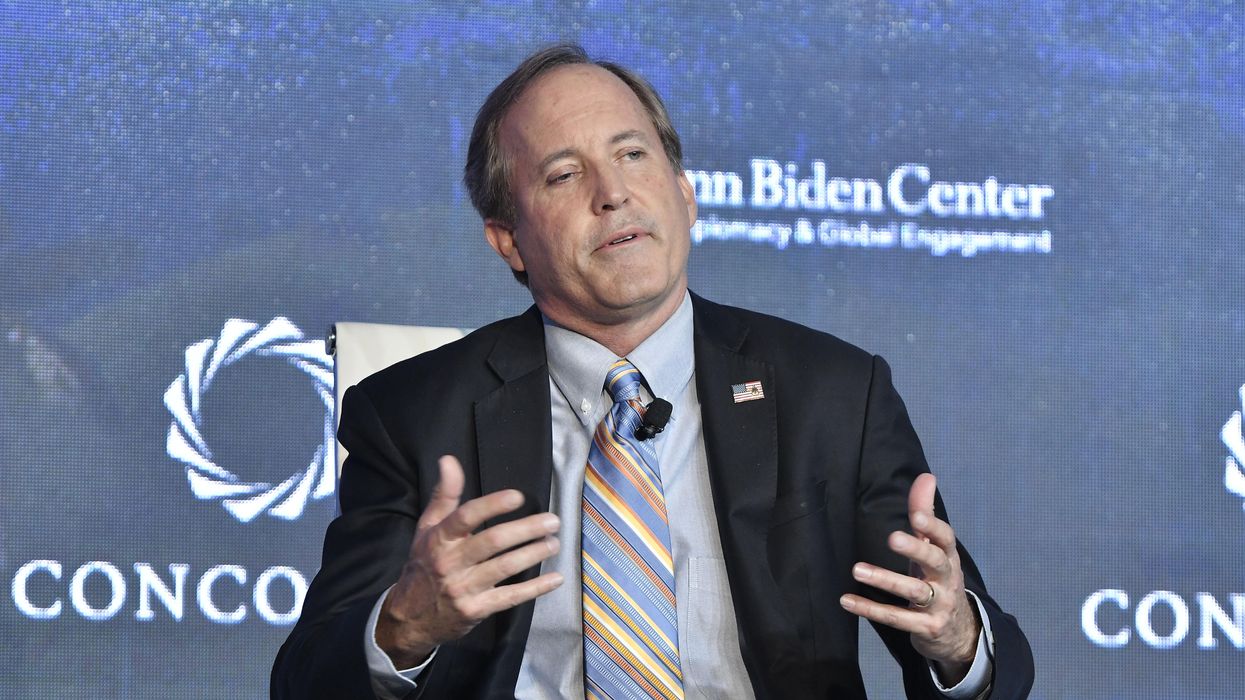Dozens of fresh and brazenly wrong claims by President Trump about stolen victory have not made it any closer to the truth. But they have accompanied a fresh rush of loyalty from his Republican allies.
GOP attorneys general in 17 other red states have joined the Texas effort to nullify the election results in big battlegrounds won by President-elect Joe Biden, a lawsuit that election law experts have uniformly derided with terms stretching from silly to outlandish, bonkers to dangerous. And as many as two dozen Republicans in the House were expected to sign on as well.
The Supreme Court could reject the claim outright as soon as the deadline for filing such briefs passes Thursday evening. If that happens, Trump will have nothing but his own false rhetoric to lean on until Congress meets to formalize the electoral vote count on Jan. 6, when more ultimately fruitless GOP shenanigans aiming to discredit democracy are guaranteed.
Trump invited the group of supportive GOP attorneys general to lunch in the Cabinet Room on Thursday, while the nation's Democratic attorneys general rushed to file by later afternoon their own brief urging the high court to throw out the Texas suit as soon as possible.
A late burst of litigation elsewhere, based on outside-the-box legal theories but unsupported by credible evidence, continues to prove fruitless.
On Thursday a Trump appointee to the federal bench in Wisconsin, Judge Brett Ludwig, said that ruling in favor of the president's bid to overturn the result in that state would be "the most remarkable ruling in the history of this court or the federal judiciary."
"All I ask for is people with wisdom and with courage, that's all," Trump told guests at a White House Hanukkah party Wednesday night. "Because if certain very important people, if they have wisdom and if they have courage, we're going to win this election in a landslide."
He backed that up with a simple "WISDOM & COURAGE!!!" tweet Thursday, one of about two dozen Twitter posts furthering his fabricated fraud claims in the past two days. Most have merited warning labels by the social media platform.
Texas Attorney General Ken Paxton's lawsuit demands the Supreme Court use its power to settle disputes between the states to throw out the combined 62 electoral votes for Biden from Georgia, Michigan, Pennsylvania and Wisconsin. (With them Biden has 306 and Trump 232.)
The rationale, supported by unproven or disproven allegations, is that all those states acted unconstitutionally to make voting easier during the coronavirus pandemic.
A quick response from the Supreme Court is expected by the end of the week, at the latest, because the Electoral College meets across the country Monday to cast its votes.
Already this week, the court has dismissed without a word of disagreement the first election suit it touched — a bid by Pennsylvania Republicans to toss that state's result with the claim that the its mail-in voting rules are out of bounds.
The chairman of the conservative House GOP Freedom Caucus, Rep. Mike Johnson of Louisiana, reached out at Trump's behest to get members of the group to formally endorse the Texas suit. (Earlier this week, 25 of them called on Attorney General William Barr to appoint a special counsel to investigate "irregularities" in the election, even though Barr himself said last week the Justice Department and FBI had found no evidence to overturn the result.)
Trump used campaign funds to get an attorney to file a motion asking to intervene on behalf of Texas and reportedly asked one of state's senators, Ted Cruz, to represent him if the case is accepted. "This is the big one," the president explained on Twitter.
Even if the Electoral College votes as expected on Monday, congressional Republicans can stage a sure-to-fail effort to block Congress from finalizing the vote. It won't succeed because such a move would need approval by both the Senate and the Democratic House.




















Trump & Hegseth gave Mark Kelly a huge 2028 gift